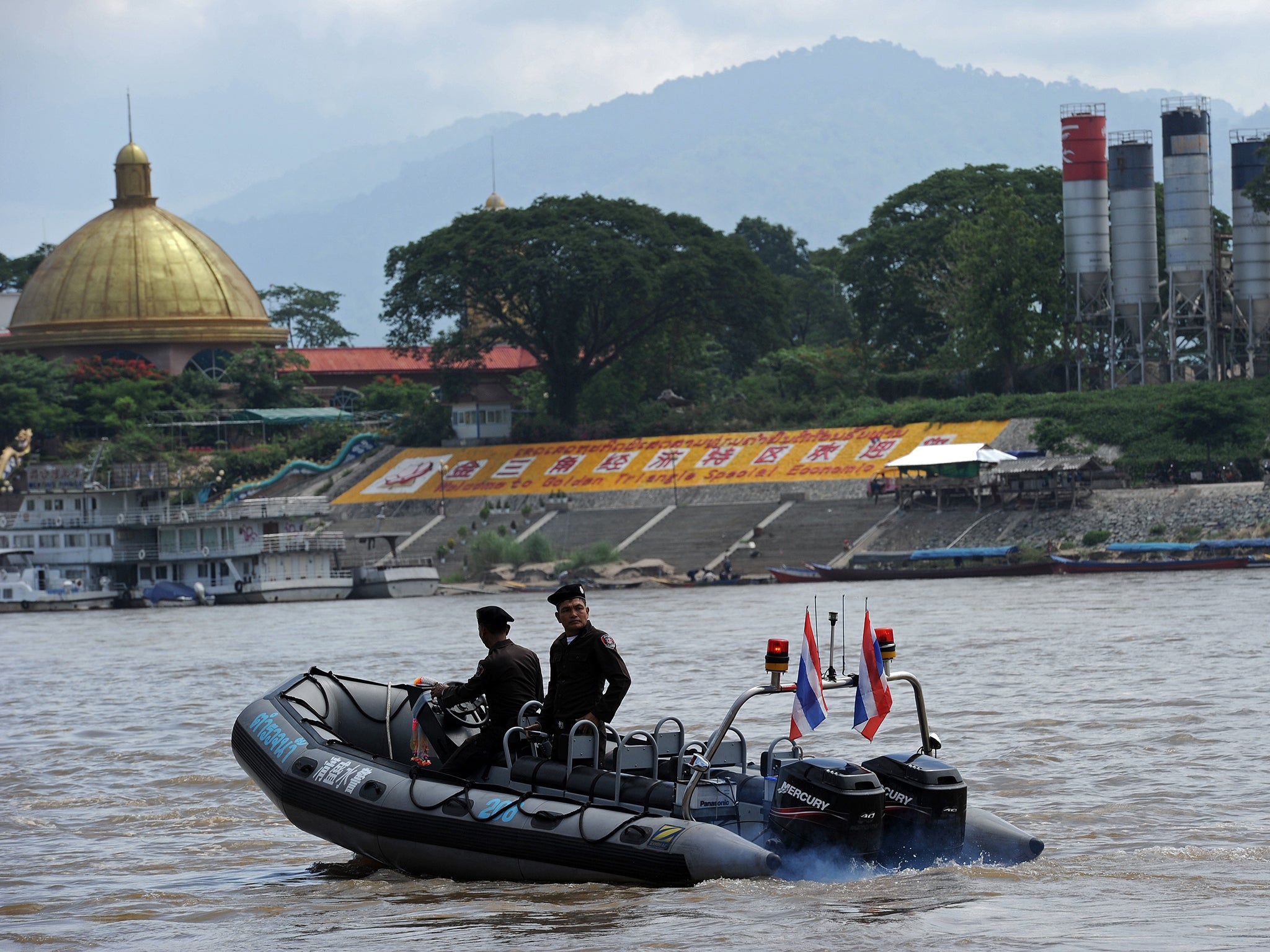Welcome to the Golden Triangle, the centre of the world's drug trafficking
The illegal drugs trade in the region is worth $16.3 billion

Thanet Toonpakdee's morning routine appears picturesque: he rises early to ready his fishing nets along the Mekong River, at the spot where the waterway meets four countries: Thailand, Myanmar, Laos and China.
Yet he has little time to enjoy the view - and he often fears for his life along the Mekong.
That's because this area is known as the "Golden Triangle", one of the world's busiest drug trafficking regions.
Toonpakdee spoke to Al Jazeera about his experiences, explaining how he tries incredibly hard to not get into any sort of confrontation with the smugglers.
"They use small fishing piers like this one to offload drugs. I never talk to them because I fear for my life."
The problem has worsened in the last decade.
A United Nations report in December revealed that opium production in the Golden Triangle had tripled since 2006, with the illegal drugs trade in the region worth $16.3 billion. The area produced 762 tonnes of opium in 2014, making about 76 tonnes of heroin, the U.N. Office on Drugs and Crime said in its Southeast Asia Opium Survey stated.
While Afghanistan is now the biggest cultivator of opium poppies in the world, the Golden Triangle used to be largest, until eradication efforts in the late 1990s brought cultivation plummeting. However, production has been on the rise once more due to a better transport infrastructure as well as an increasing number of heroin users in the surrounding countries.
Three months ago, Thailand, Myanmar, Laos and China launched a programme to curbing the illegal trafficking, with each nation realising that the problem could not be handled by each country alone. Thailand now hosts the Safe Mekong Co-ordination Centre (SMCC) in Chiang Mai town, which helps coordinate investigations between the four nations.
Has the new effort at coordination worked? According to the SMCC, appearently so.
Since operations began in January, Thailand, Myanmar, Laos and China have reported nearly 600 arrests along with solving 590 drug-related cases. Over 5,000 law enforcement officers have participated in around 840 operations.
The SMCC said they had seized 71kg of heroin, 38kg of methamphetamine, 1.2kg of opium and 4.12m amphetamine tablets.
Join our commenting forum
Join thought-provoking conversations, follow other Independent readers and see their replies
Comments